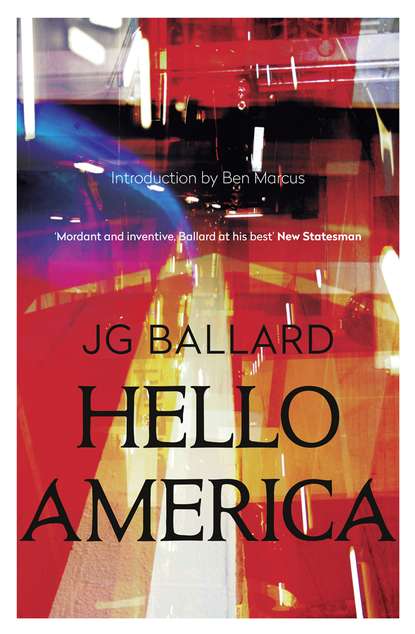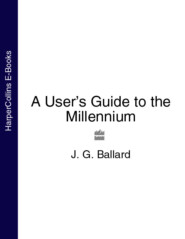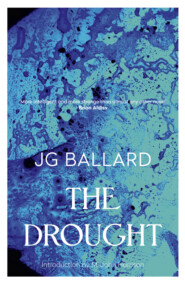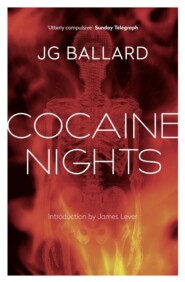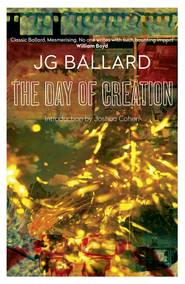По всем вопросам обращайтесь на: info@litportal.ru
(©) 2003-2024.
✖
Hello America
Автор
Год написания книги
2018
Настройки чтения
Размер шрифта
Высота строк
Поля
‘Captain, we’re holed! We’re making water!’ The petty officer rounded up his sailors. ‘Get the forward pumps going, and put your backs into it or we’ll settle here!’
Wayne struck the rail with both fists. He laughed aloud as the sailors ran past him. He realised now what had been missing from the mental picture of New York harbour he had carried with him across the Atlantic.
‘Wayne, for heaven’s sake…’ Anne Summers tried to calm him. ‘You’re going to have to swim, you know.’
‘Liberty! Professor Summers, don’t you remember?’ Wayne pointed to the Jersey shore, where a rocky island stood in the main channel. Even now the remains of a classical pedestal could be seen. The Statue of Liberty!’
They stared into the water beside the Apollo. The lamp held aloft for generations of immigrants from the Old World had vanished, but the crown still remained around the figure’s head. One of its radiating spikes had left a ten-yard-long gash in the Apollo’s hull.
‘You’re right, Wayne. My God, though, we’re going down!’ Anne Summers looked round wildly, a hand to her blonde bun. ‘The equipment, Paul! What’s the matter with Steiner?’
The first rusty water foamed from the fore-mast pump-heads. Orlowski was screaming at the Captain, his plump index finger raised accusingly. But Steiner strolled in a leisurely way around the helm, a satisfied light in his eyes. He ignored the commissar and the pandemonium on the deck, his mouth relaxed as he spoke to the engine-room on the brass voice tube.
Below the stern the two-bladed propeller thwacked the water. A heavy black smoke billowed from the funnel. The Apollo made way, dipping cumbersomely through the waves. The cold pump-water raced across the deck to the scuppers, sluicing around Wayne’s ankles. Ricci and Anne Summers backed off, but Wayne stared down at the immense statue moving away from them. At the climax of the evacuation of America, under the personal control of President Brown, the Statue of Liberty had been lowered from her plinth and prepared for shipment to the new American colonies in Europe. In a sudden storm, however, the wooden lighter built to transport the statue had broken loose from its tugs, drifted free across the bay and lost its bows on the razor-sharp keel of a scuttled freighter. In the chaos that filled the final days of the evacuation the exact location of the statue had never been established, and she had been left to break up in the cold waters of the next century.
So already the expedition had made its first discovery!
From that moment, as the Apollo limped, bow decks awash, towards New York harbour, Wayne resolved to keep a diary of the extraordinary visions he would see in the following months, led by this image of his dead mother asleep below the waves. In all good time he would present his record to Dr Fleming, the once and future father whom he would find somewhere in America, waiting for him in the golden paradises of the west.
4 Secret Cargoes (#ulink_4367f30f-c786-57d6-973c-7db471126279)
Landfall! At last the Apollo had negotiated the boom of wrecked ships in the entrance to the Hudson River and beached itself on a silt bank alongside the old Cunard pier. Lulled by the steady beat of the pumps, and the confidence that even if the Apollo foundered they could swim ashore, the crew and expedition members had fallen silent. When the Apollo buried its wounded bows in the wet silt everyone gathered at the rail, looking at the vivid quays in front of them, at the soundless city with its great towers and abandoned streets, a million empty windows lit by the afternoon sun.
Already they could see the dunes that filled the floors of these deserted canyons. The rolling sand lay ten feet deep, undisturbed by any footstep for almost a century, smoothed by the onshore winds and covered with a fine glaze of golden dust. For Wayne it seemed a magical carpet, a metallised dream from the fairy tales of his childhood. He held his breath as the ship settled into the mud under the falling tide, and prayed that the silence and calm aboard the Apollo would not give way to a sudden, greedy stampede.
There was more than enough for them all, gold beyond the dreams of Columbus, Cortez and the conquistadores. Wayne had a vision of the crew and passengers dressed in their coronation armour, he himself in gilded doublet and hose, Anne Summers in gleaming breastplates and skirt of gold leaf, Paul Ricci in a sinister black and gold armour, Steiner in a golden cape at the helm of a new gold-plated Apollo ready for its return voyage in triumph to Plymouth and the Old World…
The ship’s siren hooted, three long blasts that shattered Wayne’s ears. The sounds echoed among the silent skyscrapers, reverberated to and fro across Central Park, and were lost miles away in uptown Manhattan. Wayne clung to the faint echoes. In some way the harsh noise marked the real moment of their arrival, releasing them all from the voyage across the Atlantic, closing the past behind them as they prepared to step ashore. Like the immigrants of old, each had brought a small, precious baggage, a clutch of hopes and ambitions to be bartered against the possibilities of this new land.
McNair was thinking of gold. He stood on the forward docking bridge by the coal bunker hatchway, and wiped the black anthracite dust from his beard. He was looking up at the Cunard wharf, and at the very different dust that lay over the sunlit dunes. The sand was now an almost liquid bronze in the late afternoon. A desert sea had flowed through Manhattan and congealed around these huge towers. The ravages of a century’s hostile climate had split the Appalachians and sprung this ransom from their hidden lodes.
Already McNair was thinking hard, deciding how best they could gather in this golden crop. Rather than disturb the surface with spade and shovel or with a mechanised dragline, they needed a modified combine harvester, which they could then drive across the dunes, its specially slatted blades scooping up just the precious topsoil.
McNair stared back at the huge buildings, at the giant piers of the concrete expressways and overpasses. True, he had been surprised by the brute size of the suspension bridge across the narrows, and by the vast dimensions of the old United States and the Nimitz. But already McNair’s pugnacity had returned, and he had every intention of meeting this great continent on his own terms. The years of training at the marine engineering school in the Glasgow shipyards would not be wasted. The skills needed to resurrect this dormant giant, to wake its railroads, dams and bridges, its mines and industries, were very much those that lay in his own hands. The computer men and communications wizards could come later, when the basic clockwork was ticking soundly.
During the past century the small American colony in Scotland had almost been assimilated into the local community, but McNair had always known that he would one day return to the United States. He needed its size and scale to find his real talents, which he was certain were far beyond those of a mere ship’s engineer. He came from a family whose roots lay in the great technologies of America’s past – one of his ancestors had worked on the NASA team that put Neil Armstrong on the Moon.
When the vacancy on the Apollo was posted McNair had been serving as second engineer aboard a bulk coal carrier on the Murmansk-Newcastle run. No one else was interested, but McNair volunteered without thinking, even though he would not be part of the inland expedition. Now, having propelled the Apollo across the Atlantic, he was ready to step ashore and start things moving.
The gold was a lucky bonus, a signal to him to back his own obsessions to the end. The fossil fuels, coal, gas and oil, might have run out here, but America always had something unexpected up its sleeve. McNair cared nothing for the gold’s ornamental or monetary value, except in the eyes of others. With the gold they could buy coal, bauxite, timber and iron ore from the rag-tag nations in southern Africa and South America.
McNair gazed confidently at the empty city, reminding himself that the principal mission of the Apollo expedition was to investigate the small but significant increase in atmospheric radioactivity which had been detected over the American continent in recent years. Perhaps the core of one of the old nuclear power stations had begun to leak dangerously, or a decaying war-head in some forgotten weapons silo had reached critical mass. Whatever the reason, the possibilities excited him. He thought of the two physicists, Ricci and Anne Summers, heads lost among their Geiger counters. But if only they could harness that dormant nuclear power they would really rouse a sleeping giant, start nothing less than a third industrial revolution…
For Orlowski, who was standing by the stern rail, one eye warily on Captain Steiner, this first sight of the empty skyscrapers of Manhattan prompted far more ambiguous feelings. He had never wanted to come on the expedition in the first place. After three successful but rigorous years opening up the new Arctic coalfields on Novaya Zemlya he had been looking forward to a comfortable desk at the Moscow headquarters of the Energy Resources Ministry. He remembered the post of expedition leader being circulated in the office newsletter, but had dismissed it out of hand. No one but a fool would want to spend six months wandering around the barren north American continent, a forgotten wilderness as distant as Patagonia.
There was some concern now over these leaks of radioactivity – small clouds of fall-out had recently drifted across the North Atlantic – but the few reconnaissance expeditions during the past fifty years had reported back nothing of value, a land long since stripped by a greedy nation of all its coal and oil. In fact, the Fleming expedition twenty years earlier had ended in disaster, its members perishing of thirst in the great salt wastes of Tennessee after inexplicably leaving their planned itinerary. The rescue mission four months later had found an abandoned camp outside Memphis, a trail of skeletons gnawed by lizards and gophers.
For obvious reasons it was then decreed that any future expeditions would be headed by a political leader, whose main job would be to keep a tight rein on the impulsive scientists. Anyone, Orlowski decided, other than Gregor Orlowski. But annoyingly some faceless rival at the Ministry had discovered his American antecedents. His great-grandparents had returned from Philadelphia to the original family home in the Ukraine on board the very first emigrant boat, changed their name back from Orwell to Orlowski and rapidly reassimilated themselves into Russian life.
Before he could protest, Orlowski found himself at the dockside in Plymouth, England, in charge of this apparently professional but in fact very strange team. At times, as they crossed the Atlantic, Orlowski had felt that he was supervising a crew of sleepwalkers. Like himself, every member of the expedition had American ancestry, but unlike himself none of them had made any real effort to assimilate themselves into their readopted nations. From the day they sailed he was convinced that they had each smuggled some secret cargo aboard – long experience as an expedition leader had given him a sharp nose for illicit alcohol, black market electric batteries, an overweight suitcase lined with coal briquettes.
However, it soon became clear that their reasons for joining the expedition had little to do with its scientific mission, and that the real contraband was their collective fantasy of America. The discovery of the young stowaway, Wayne, had acted as the catalyst – all these private escapees had soon come out into the open, united by their shared dream of ‘freedom’ (the last great illusion of the twentieth century), the same conviction that they would make a new life and fulfil themselves that must have been felt by their distant forbears when they were herded through the immigration pens of Ellis Island.
Yet what could they conceivably find in that landscape of ash and clinker, in those empty cities that required more fuel to run them in a day than the whole planet now consumed in a month? Probably none of them knew – with the single exception of Steiner, standing on the bridge of his sinking ship with his quiet, good-humoured smile. No real captain tried to sink his ship, and Orlowski was sure that Steiner had deliberately ruptured the bows of the Apollo across the submerged statue. The scattered American communities in Western Europe still offered a small reward for the whereabouts of the statue, but Steiner’s motives would be more complex.
Orlowski thought of the hours which the Captain and his young stowaway spent going through the old Time and Look magazines, almost drugged by the lavish advertisements. Then there had been the embarrassing matter of the christening of the ship – officially Survey Vessel 299. Orlowski had proposed the E. F. Schumacher, but far from supporting him everyone had howled him down. At Steiner’s prompting they unanimously accepted Wayne’s suggestion, the Apollo. A sentimental gesture, an invitation to think big instead of small, to shoot for the moon, which Orlowski had tolerated, slightly moved himself by the thought that in a way they were duplicating Armstrong’s voyage. But the terrain of America would be as desolate as the Moon’s. He would have to watch everything, all kinds of psychological mischief could be hatched up here.
Yes, he decided, they would quickly establish the source of the nuclear leaks, radio the full findings to the monitoring station at Stockholm and then return to Europe at the first opportunity, leaving to a larger and better-equipped expedition the task of neutralising the danger.
Meanwhile he would make the most of the enforced time here, collect a few souvenirs (through the strange gold light over the Brooklyn shore he could actually see an old Exxon gasoline sign, worth a good few roubles) for Valentina and the girls. And travellers’ tales, useful at Ministry cocktail parties. This brooding, ancient landscape with its dead cities—for a moment Orlowski imagined himself being colonial administrator of New York, pro-consul of thousands of miles of arid wilderness. The prospect steadied him as he prepared to step ashore. This was a large land, waiting for a large man to rule it…
As he wiped the soot from his elegant hands on to the midship’s rail, Dr Paul Ricci was thinking: So this is New York – or was. Greatest city of the twentieth century, here you heard the heart-beat of international finance, industry and entertainment. Now it’s as remote from the real world as Pompeii or Persepolis. It’s a fossil, my God, preserved here on the edge of the desert like one of those ghost towns in the Wild West. Did my ancestors really live in these vast canyons? They came on a cattle boat from Naples in the 1890s, and a century later went back to Naples on a cattle boat. Now I’m making another stab at it.
Still, the place has possibilities, all sorts of dormant things might be lying here, waiting to be roused. Like the beautiful Professor Summers. She’s standoffish now in her moody way, but once we hit the expedition trail, the dust on our bronzed bodies, the smell of horses between our thighs, the hint of danger as we track down this radiation leak (no doubt a ruptured reactor core, they were in such a hurry to get out they didn’t pack enough concrete around them), she’ll behave a little differently…
But it’s hot here, all right, I can see the heat shimmering off the dunes. Better, though, than being back in Turin, that small scandal over the Institute Library Fund was about to explode. I would have had to testify at the inquiry, my own role would have been difficult to conceal…professional disgrace, imagine spending the next ten years as a factory chemist at the fishmeal processing plant in Trieste, a shared room in a dormitory, the stink of dried squid. No, even this empty city is preferable. Whatever else you might say about these people, they had size and style. Maybe great-grandfather Ricci did come from here. I can see him in a big car cruising down Broadway, what did they call that huge chrome beast – yes, a Cadillac.
For Professor Summers, her first impressions of Manhattan were still confused by the Apollo’s mad dash across the wreck-strewn bay and their collision with the submerged statue. What was Steiner playing at, this curious man with his intense, unsettling eyes, forever gazing at her? The empty metropolis now only a stone’s throw away had the same disconcerting effect, it already seemed to be trying to provoke her. There was an undeniable abrasive glamour about New York even now, a whiff of the energy and enterprise of the ruthless men of affairs who had erected these skyscrapers. She had been brought up in the American ghetto in Berlin (Anna Sommer was her Germanised name, which on a strange impulse she had re-Anglicised back to Anne Summers after her first night in Plymouth), and New York occupied a special place in the expatriate memory. There was even a cocktail called a Manhattan, a confection of whiskey and vermouth. Native Europeans were always chiding their American-descended cousins for their forbears’ vulgar tastes, but Anne loved the elusive flavour of the Manhattan, with its dark memories of glamorous hotels, limousines and gangsters…
But back to business, this ‘cocktail’ in front of her might contain as one of its mystery ingredients a dangerous radioactive isotope. Fortunately she had kept her scientific work up to scratch during the voyage, five hours a day in the laboratory despite Ricci’s protests and seasickness. Clearly the Apollo would be in no position for some time to evacuate them in an emergency. The latest reports from Stockholm suggested that the fall-out vectors in the North American airstream emanated from somewhere south of the Great Lakes – Cincinnati and Cleveland. Curiously, although she had not confided this to Ricci, the isotopes involved were barium and lanthanum, those released by old-fashioned atomic weapons, the war-heads of tactical artillery shells, for example. Perhaps the corrosion of a century had cut its way into one of the old nuclear arsenals.
Meanwhile she would rigorously carry out the thrice-daily seismographic and radiation measurements, keep an eye on Ricci (far too slapdash, and clearly prepared to steal any credit), and protect her immaculate white skin from this barbarous sun. Why had she volunteered in the first place? – leaving the small but comfortable flatlet in Spandau; her attractive if earnest lover, a middle-aged pharmacologist at the State Veterinary Collective; the extra meat ration once a month. But despite all these, she needed to breathe, to extend herself, even to dream. Avoiding Steiner’s eyes, she looked up at the huge, raw buildings, with their brute strength. She knew that she had come to the last place on earth, where dreams could still take wing.
As for Captain Steiner, he stood alone on his bridge, pressing his tired back against the spokes of the helm. Out of curiosity he had been watching the behaviour of his crew and passengers, trying to guess how they would react in the next few minutes. It had been a long voyage, a confidence trick of a special kind, with many risky decisions to be made. But he had beached the leaking Apollo as planned on the silt bank beside the Cunard pier, in the very space once occupied by the great Queens. Here she would sit long enough for him to carry out the rest of his private quest.
Steiner steadied the slight shaking in his hands, remembering the final dash across the harbour. Fortunately the submerged statue had not been moved by the currents. She lay line astern of the Nimitz, exactly as described by the senile survey ship captain in Genoa whom Steiner had spent so many shore-leaves patiently plying with grappa. He thought of his own long years of service in the Israeli Navy, patrolling the mill-pond Mediterranean for OPEC corsairs. Despite the steep Atlantic seas ahead, he had really been preparing himself, not for the open ocean, but for the open land. For the silent desert of the American continent, so unlike the high-rise-infested landscape of Israel, Jordan and Sinai.
He began to empty his mind of everything but the terrain beyond the gates of the city, the open doors at the ends of the long avenues that led out into the deserted continent, a land as great as any ocean, on which he himself would soon navigate, this descendant of Phoenix and Pasadena physicians who had always secretly regretted not being sired by plainsmen and astronauts. Now he had returned to his own country, where he would soon ride again, one foot on the stirrup of the land, the other with luck on space itself.
5 To the Inland Sea (#ulink_ec01e531-8b0f-5c6d-bc5c-707a478c7987)
Everyone was going ashore, leaving him behind! Surprised by the rush to disembark, Wayne found his hands clamped to the rail, as if Orlowski had crept up behind him with a pair of handcuffs. A sudden excitement had overtaken the crew and expedition members alike, a long-pent need to throw themselves on to American soil. One moment they were all staring at the grey skyscrapers and deserted streets, and the next there was a mad stampede for the gangway. Sailors abandoned the pumps, dashed to the fo’c’sle and emerged with duffel bags and empty suitcases, eager to ransack every store in town.
Only Orlowski turned his back to the shore. He stamped on the deck, bellowing through his pocket megaphone at the Captain. ‘Steiner! Call your men back! Can’t you control your crew? Captain!’
But Steiner leaned amiably against the helm, like a tolerant gondolier watching a party of easily excited tourists leave his craft.
McNair was the first ashore. He climbed the fore-mast shrouds, let out some barbarous Scots-American war-cry, and leapt on to the silt bank below. He sank to his thighs in the wet mud, struggled free and strode up the oozing slope. Everyone on the gangway watched him, waiting to see if anything happened. He reached the deck of the rusting Cunard pier, then ran towards the first of the great golden dunes that spilled over the riverside streets. Wayne saw his mud-stained arms send up a spray of gilded dust as he bent down and seized the bright sand. His golden figure disappeared over the crest of the dune, muffled voice echoing among the office blocks.
Within minutes the crew had laid a temporary catwalk of life-rafts and decking planks across the silt bank, and set off towards the city, waving their suitcases at each other. Behind them followed the expedition members, while Steiner watched from the bridge of the abandoned Apollo. Orlowski took the lead, solar topee protecting his bald head. Now that they had left the ship his good humour had returned, but he glanced at the Geiger counter in Paul Ricci’s hand, as if he half-expected the silent streets to be ticking with radioactivity.
‘Extraordinary,’ he confided, ‘I feel like Columbus. By rights the natives should appear now, bearing traditional gifts of hamburgers and comic books. Are we quite safe?’
Anne Summers did her best to reassure the commissar. ‘Dear Orlowski, do relax. There are no natives, and no trace of radioactivity within a hundred miles. Your chief danger is colliding into a parked car.’
Ricci knelt in the fine sand. He scooped up a handful of grains, his quick eyes following the footprints which McNair had left across the dune.
‘It’s remarkable, Anne. Even from here it looks like gold. An analysis might be worth making—I’d like to reserve the spectrometer for an hour tonight.’





